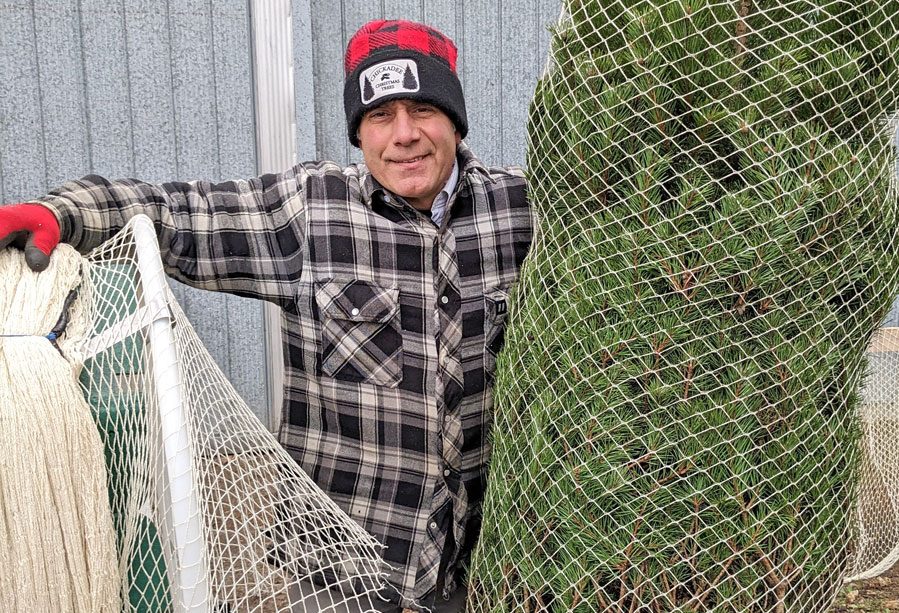PUSLINCH – What could be more environmentally sustainable than getting a real Christmas tree as opposed to an artificial one?
Getting a real tree that’s wrapped in biodegradable netting and not the usual plastic netting, Alison McCrindle says.
McCrindle and her husband Joe Wareham have owned Chickadee Christmas Tree Farm, located in Puslinch, since 1997 and have been selling trees since 2002.
But using single-use plastic has weighed heavily on their minds and they started exploring biodegradable netting instead.
“The netting around the trees is plastic, and everyone knows that’s not good for the environment,” McCrindle said.
“We started looking for cotton netting, but it was nowhere to be found, so we’re having it made. So now on our farm, there is only biodegradable netting.”
McCrindle said the couple started exploring cotton netting last year and their journey led them to netting distributors in Washington, who make nets for fishing.
They finally connected with a manufacturer in Europe and have been working on a prototype for about a year. Several prototypes, in fact.
“They kept sending them until we were happy, so this is our second year at it. What we had last year was red; this year we get the nets undyed,” she said.
McCrindle said they’ve let other tree farms know about it and a few are trying it out this year, including Madeira Farms in Rockwood.
“We want to be as sustainable as possible,” said Karen Medeira in a phone interview.
“I’m excited about it. It costs a little more but it’s the right thing to do.”
“We hope to get the word out,” McCrindle added. “We mainly want less plastic in the environment and now something is available.”
McCrindle said she and her husband did a test in the spring, burying a piece of the biodegradable netting, some plastic netting and a green garbage bag.
They left them for three and a half months and dug them up again.
“The plastic was exactly as buried but the bio net was absolutely gone,” she said.
“We knew it would break down quicker than plastic but that was a surprise. It’s exciting.”
The bio net costs a little more than plastic netting but not prohibitively so. It works out to about $1.50 more per tree.
“A lot of people are interested in products that are better for the planet. We growers have to shift our thinking,” said McCrindle.
For more information, visit chickadeechristmastrees.ca.




